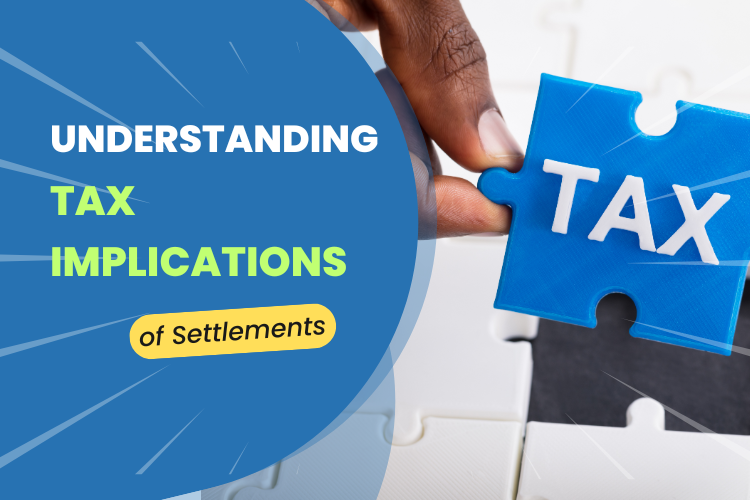
Understanding the Tax Implications of Settlements: When Ordinary Income Rules Apply
Understanding the tax implications when you receive a settlement, whether from a lawsuit, a legal claim, or an insurance payout, is essential.
The Internal Revenue Service (IRS) treats some settlement money similarly. Knowing how your settlement is taxed can help you plan and avoid surprises when filing your taxes.
Let’s explore the different scenarios and how they are taxed as ordinary income.
1. Physical Injury or Physical Sickness

Generally, if you receive a settlement for personal physical injuries or physical sickness, it is not taxable. The Internal Revenue Service (IRS) exempts such settlements from being considered taxable income.
Therefore, you are not required to include the compensation in your overall income, and it is not subject to the ordinary income tax rate.
However, there are exceptions:
- Punitive Damages: Punitive damages are taxable, even if related to the physical injury.
- Interest: If your settlement accrues interest before it is paid out, the interest portion is taxable as ordinary income.
- Previously Deducted Medical Expenses: If you received a tax benefit from deducting medical expenses related to the injury in prior years, that portion of the settlement may be taxable.
2. Non-Physical Injury

Settlements for non-physical injuries, such as discrimination at work or emotional suffering that does not result from an injury, are typically subject to regular income tax.
This means the settlement amount will be included in your taxable income and taxed at your regular income tax rate.
3. Lost Wages or Profits

When you get a settlement that makes up for lost wages or profits, the IRS sees this as a replacement for income that would have been taxed.
Therefore, these settlements are subject to ordinary income taxes, withholding, and payroll taxes, just as your regular wages or business income would be.
4. Punitive Damages
Punitive damages are given to punish the defendant instead of making up for the loss the plaintiff suffered.
Consequently, regardless of the nature of the injury or claim, these amounts are consistently subject to taxation as ordinary income.
It is important to remember this difference because it can significantly affect how much you get from a settlement after taxes.
5. Interest

Interest that accrues on a settlement is considered separately from the settlement itself. This portion is subject to taxation as interest income, which falls under the ordinary income category.
The tax rate applied to it is identical to other types of interest, such as those earned from a savings account or investments.
6. Property Damage

When you receive a settlement for property damage, the tax treatment depends on the amount relative to your basis in the property (usually the property’s cost adjusted for factors like depreciation).
If the amount received in the settlement does not exceed your adjusted basis, it is not subject to taxation as it is regarded as a reimbursement of your expenses.
However, if the settlement exceeds the property’s adjusted basis, the excess is considered a capital gain and may be taxable.
Conclusion
Taxation of settlements can be complex, and the tax treatment varies depending on the nature of the settlement.
Understanding these distinctions is crucial to ensure compliance with tax laws and plan for the potential tax impact. Always consult a tax professional or CPA for advice tailored to your situation.
Remember, the tax code can change, and staying informed is the best way to manage your financial health.
